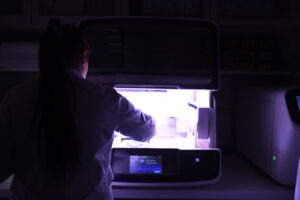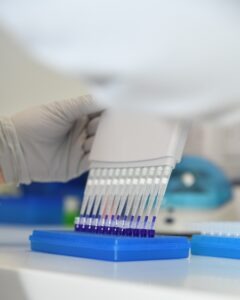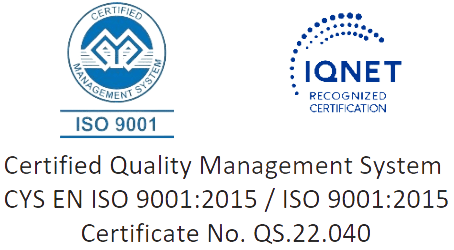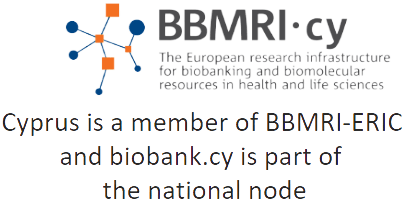The Diagnostics Laboratory is another pillar of the biobank.cy CoE offering genetic diagnostic and prognostic testing to the Cypriot population, also with referrals from several kidney centers in Greece.
Essential genetic testing services extend the diagnostics laboratory’s impact both locally and globally
The diagnostics laboratory provides highly accurate and safe genetic tests by using the Ion GeneStudio™ S5 System for next generation sequencing (NGS) from Thermo Fisher Scientific. The processed data are analyzed, annotated, and evaluated by the diagnostics team experts using the Ion Reporter® tool and in-house analysis pipelines incorporating state-of-the-art variant scoring matrices and databases, such as the American College of Medical Genetics and Genomics (ACMG) criteria and the Human Gene Mutation Database (HGMD), and specialized meta-predictor tools.
The diagnostics department has designed and offers a plethora of genetic tests for renal disorders, including familial hematuric nephropathies (FH), thin basement membrane nephropathy (TBMN), Alport Syndrome (AS), focal segmental glomerulosclerosis (FSGS) and nephrotic syndrome, autosomal dominant polycystic kidney disease (ADPKD), Barter Syndrome, Gitelman Syndrome, and other rare heritable kidney disorders.
We offer both gene panels and whole exome sequencing analysis (WES).
In addition, the diagnostics department, within the framework of a research program, offers genetic tests for several cardiomyopathies and other syndromes in collaboration with many cardiologists, mainly through the Department of Cardiology of the Nicosia General Hospital.
To date, the diagnostics laboratory has provided a genetic service to hundreds of patients and relatives of more than 100 families.
The Head of the diagnostics laboratory plans, organizes, directs, and coordinates a range of activities in the laboratory. Other duties involve administration work, supervision, and assistance of junior and research staff members, and the overall oversight of the diagnostic tests to ensure that there is adherence to standard operating procedures and policies that meet the high quality and safety standards.
The diagnostics team implements, evaluates, and reports the patient’s results with the supervision and approval by the biobank.cy Director according to protocols and standards.
Our future goal is to expand our knowledge and develop new types of tests in response to community needs and facilitate the prognosis and prevention of rare genetic diseases.
*Dr Christiana Polydorou is the Manager of the Diagnostics Department








